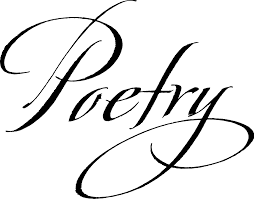中文词源
poetry 诗篇
poet-,诗人,-ry,集合名词后缀。
英语词源
- poetry (n.)
- late 14c., "poetry; a poem; ancient literature; poetical works, fables, or tales," from Old French poetrie (13c.), and perhaps directly from Medieval Latin poetria (c.650), from Latin poeta (see poet). In classical Latin, poetria meant "poetess."
... I decided not to tell lies in verse. Not to feign any emotion that I did not feel; not to pretend to believe in optimism or pessimism, or unreversible progress; not to say anything because it was popular, or generally accepted, or fashionable in intellectual circles, unless I myself believed it; and not to believe easily. [Robinson Jeffers (1887-1962), forward to "Selected Poems"]
Figurative use from 1660s. Old English had metergeweorc "verse," metercræft "art of versification." Modern English lacks a true verb form in this group of words, though poeticize (1804), poetize (1580s, from French poétiser), and poetrize (c. 1600) have been tried. Poetry in motion (1826) perhaps is from poetry of motion (1813) "dance" (also poetry of the foot, 1660s).
Poetry -- meaning the aggregate of instances from which the idea of poetry is deduced by every new poet -- has been increasingly enlarged for many centuries. The instances are numerous, varied and contradictory as instances of love; but just as 'love' is a word of powerful enough magic to make the true lover forget all its baser and falser, usages, so is 'poetry' for the true poet. [Robert Graves, "The White Goddess"]
权威例句
- 1. I myself enjoy cinema, poetry, eating out and long walks.
- 我本人喜欢电影、诗歌、外出吃饭和远途散步。
- 2. I think that a lot of poetry published today is obscurantist nonsense.
- 我认为当今出版的很多诗歌都是故弄玄虚的无病呻吟。
- 3. Her editors wanted her to cut out the poetry from her novel.
- 编辑们想让她把这首诗从她的小说中删去。
- 4. His music is purer poetry than a poem in words.
- 他的音乐比真正的诗歌更具诗意。
- 5. His letters, like his poetry, are life-enhancing and a delight.
- 他的信跟他的诗一样,读来令生活更添滋味,可谓一大乐事。

